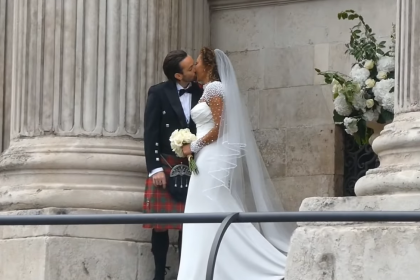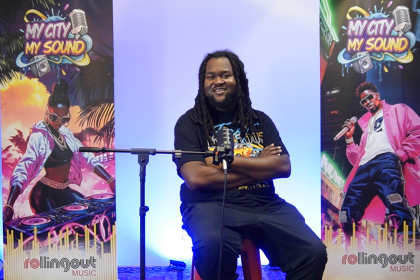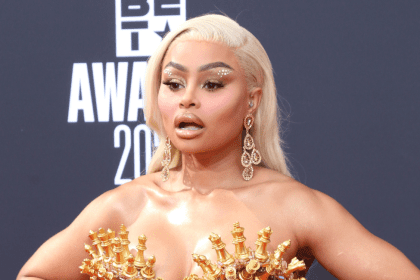 Kola Boof is brave. This is the most succinct way to describe a woman who survived more than six months of captivity at the hands of one of the most notorious terrorists since Adolf Hitler. Boof endured endless rapes and beatings at the hands of the late Osama bin Laden when she was an international model working in north Africa.
Kola Boof is brave. This is the most succinct way to describe a woman who survived more than six months of captivity at the hands of one of the most notorious terrorists since Adolf Hitler. Boof endured endless rapes and beatings at the hands of the late Osama bin Laden when she was an international model working in north Africa.
The award-winning author, model and activist has penned, The Sexy Part of the Bible: A Novel, a cerebral work of fiction that chronicles the life of an African beauty name Eternity. It’s due in stores this summer. –yvette caslin
What inspired you to write the The Sexy Part of the Bible: A Novel?
I wanted to write something that addresses skin bleaching in Africa because it has become an epidemic. Worldwide, we have a problem with colorism where darker, especially darker-skinned black women, are not valued and appreciated by the black community itself. Music videos, images in movies, everything sort of bans the images of beautiful dark-skinned black women. In the 1930s, Hattie McDaniel was [advised by MGM] to gain weight in order to play those roles. That’s what we’re going through. Light-skinned women are [considered] beautiful and [Hollywood is] using them to sell a white image. The actual women who really look black are not promoted. They try not to show that form of beauty. I wanted to write a book that really delved into that. That is why I came up with the whole theme of skin-bleaching and having this beautiful super model [Eternity] who’s [reincarnated], yet she is too black to play herself in a movie. 
Do you believe we can overcome colorism? If we can, how?
Yes, I think we have to overcome our own beliefs in white supremacy because most blacks in America, Europe and parts of Africa — the big cities where they have televisions and magazines — have been sort of brainwashed against blackness. To think that our hair is not good hair when our hair is natural and is the most human because we came first, before anyone. We existed first, so all of humanity is within us. We have been brainwashed that to be dark-skinned is unattractive. These things are completely untrue. We have been conditioned to view our features as unattractive. If you conditioned children to see large noses as attractive, that’s how they will see them. They’re only seeing things in this manner because for the white, Hollywood image, everything has to be as light as possible. Look at the pressure on mixed people, they have to be even lighter. If we say that it’s a rainbow of people and all people are beautiful, we have to actually [promote] it. We can’t just say it but make all of the dark girls stand in the back. We have to start doing things and say we need a beautiful dark-skinned princess, too. On the cover of King magazine, put a [dark-skinned] black girl on the cover for once. Ninety percent of the women are either Latina or very, very high yellow. Harriet Tubman in the days of slavery made the comment that she could have saved more slaves if she could have convinced slaves that they were slaves. That’s where we are right now. We can’t convince most black people that this is wrong.
What do you hope readers will learn from reading this novel?
It’s like bridging Africa with black America. We are all Africans. Most black Americans still look African. I am really real, and the message that I am bringing to people is for us to love ourselves as a people. We need to put our family first and support our sisters and brothers and support ourselves. There are many beautiful dark-skinned people in the world. We have to remember that everyone wants to look like us.










